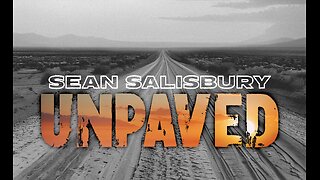Premium Only Content

Victims or survivors? Victimology as Viewed by a Behavior Analyst
Originally Broadcast on 1.31.2021
Karola Dillenburger is a Professor of Behaviour Analysis and Education and Director of the Centre for Behaviour Analysis at Queen’s University Belfast. She co-ordinates the MSc in Autism Spectrum Disorders (MSc ASD) and teaches on the online MSc Applied Behaviour Analysis (MSc ABA). Karola provides insights from her 2007 article on behavior analysis and victimology. Her own experiences living in Northern Ireland supplement this often neglected side of the impact of criminality. We find that many of the same contingencies found with victims are also in place in the learning histories of victims.
Find this in audio form on the Criminal Behaviorology Podcast:
Show Highlights:
- What is Victimology as a field of study?
- The main differences between victims and survivors?
- The three key concepts: a) personal learning history; b) prevailing contingencies; and c) cultural contexts. How these concepts factor in the development of victims and perpetrators.
- The importance of behavioral economics in the study of victims. Closed and open economies.
- Trans-generational transmission of trauma.
- The old idea of an “unconscious longing to be a victim.” The lack of evidence to support such a notion and how a careful examination of the contingencies involved can dispel many of these mysterious explanations of victim behavior, as in domestic violence and other examples.
- Karola’s emphasis on getting away from “bigger and bigger words,” greater elaboration found in much of psychodynamic and psychological literature, and instead focus on the basics of behavior. What is the antecedent? What is happening now? Behavior analysis as a means to deal with depression and bereavement.
- The increased use of behavior analytic concepts in several fields, often without even mentioning the field of behavior analysis specifically.
Dillenburger, K. (2007). A behavior analytic perspective on victimology. International Journal of Behavioral Consultation and Therapy, 3, 433-448.
https://files.eric.ed.gov/fulltext/EJ801233.pdf
Queen’s University Belfast - Centre for Behaviour Analysis:
Behaviour Analysis: A Primer:
http://behaviouranalysis.eu.com
Look up CrimBehav on Facebook: facebook.com/CrimBehav.
Criminal Behaviorology on Blogger.
CB Podcast Sites:
https://criminalbehaviorology.podomatic.com
https://anchor.fm/criminalbehaviorology
https://itunes.apple.com/us/podcast/criminal-behaviorology/id1441879795?mt=2&uo=4 https://www.google.com/podcasts?feed=aHR0cHM6Ly9hbmNob3IuZm0vcy83MzY4OWFjL3BvZGNhc3QvcnNzhttps://open.spotify.com/show/5VM7Sjv762u7nb91YWGczZ https://www.breaker.audio/criminal-behaviorology https://overcast.fm/itunes1441879795/criminal-behaviorology https://pca.st/Q38w https://radiopublic.com/criminal-behaviorology-GEv2AZ https://www.stitcher.com/podcast/anchor-podcasts/criminal-behaviorology
Please write a review on any of our podcast sites listed above.
Questions, comments, and requests for transcripts to: criminalbehaviorology@gmail.com
Thank you for listening.
-
 LIVE
LIVE
Matt Kohrs
1 hour agoRumble Recap: Big Things Coming w/ CEO Chris Pavlovski
14,512 watching -
 LIVE
LIVE
Tucker Carlson
39 minutes agoHere’s What It’s Really Like to Live as a Christian in the Holy Land
2,833 watching -
 LIVE
LIVE
Dr Disrespect
2 hours ago🔴LIVE - DON DISRESPECTO - MAFIA OLD COUNTRY - OFFICIAL GAMEPLAY
2,547 watching -
 LIVE
LIVE
Sean Unpaved
1 hour agoFirst Snaps & Two-Way Stars: QB Debuts and Hunter's NFL Fit
159 watching -
 1:05:51
1:05:51
Timcast
1 hour agoTrump Seizes Control of DC Police, Deploys National Guard As Crime Skyrockets
120K72 -
 2:09:22
2:09:22
Steven Crowder
4 hours ago🔴 BREAKING: Trump Declares Federal Control of DC
254K163 -
 LIVE
LIVE
Nerdrotic
4 hours ago $0.11 earnedNerdrotic Nooner 506
612 watching -
 DVR
DVR
Neil McCoy-Ward
1 hour ago🔥 You Won’t Believe What The UK Government Just ADMITTED! 🇬🇧
5.61K2 -
 LIVE
LIVE
Rebel News
56 minutes agoMontreal Pride drama, Jewish father attacked, Atlantic Canada climate lockdown grows | Rebel Roundup
834 watching -
 LIVE
LIVE
IrishBreakdown
1 hour agoNotre Dame Must Continue Its Dominance Over The ACC
369 watching